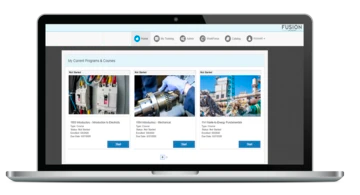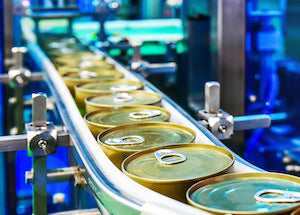In our 2025 survey and report on the state of industrial maintenance marketplace, we asked approximately 200 manufacturing organizations which skill they value most.
Those surveyed represented organizations with maintenance teams of all sizes, 80% of which had 10 or more full-time maintenance employees and 39% of which had over 50 full time maintenance team employees. Within these teams, the skills and abilities sought included many above and beyond technical skills.
Respondents were asked to choose their top 3 skills. In fact, only about half included core maintenance skills as a top pick. The results were as follows:

Improvements in each of these areas can have big impacts on your facility’s uptime and profitability. It’s clear that technical skills are king, and incorporating the other tactics can bring big wins. A few others on the list have the potential for big improvements in your maintenance efforts.
Ability to work effectively in a team: Outside of the small organizations with a single or couple of team members, teams often need to work together and pool their knowledge and experience to find the right solution. If they struggle to work with their teammates or to get on the same page, you may see increased downtime durations when problems arise. On the other side of the coin, teams who work together seamlessly can have one team member start repairs and another in a separate shift complete them for a faster return to production.
Clear and concise communication: When your whole team understands the same terminology and tactics and commits to communicating across shifts and functional teams, everyone wins. It means increased facility safety, too, when repairs and maintenance areas are communicated between teams and shifts. Better communication improves scheduling and reduces downtime.
Making informed decisions under pressure: This requires confidence in skills, which team members can acquire with more experience or training. If they aren’t sure how to calculate the PPE they need to for the job or need to solve an emergency without the expertise to back it up, they are at higher risk of causing an accident or being injured.
Familiarity with industry standards and regulations: Standards and regulations are part of the core knowledge for technicians. Without this knowledge, your teams and equipment are at greater risk.
Open to feedback and continuous learning: Habits aren’t everything, and not all habits are good or safe. If the teammates sharing habits are closed to the idea of continual improvement and learning, then they may be completing tasks in a way that is no longer acceptable per the current code. Every member of your team can benefit from updating their knowledge to current best practices and leaving bad habits behind.
Analyzing data and identifying patterns: Arguably one of the most challenging tasks maintenance teams might need to learn, this skill allows your team to use more advanced maintenance strategies that help increase uptime and plan downtime.
It’s not enough to just focus on basic technical skills and rely on your most experienced workers. 85% of those surveyed also use or plan to use third party training providers to stay ahead of the curve – an important step in ensuring that your team is not ruled by habits and instead focuses on best practices and safer work.






Comments
Sorry, no comments found for this article